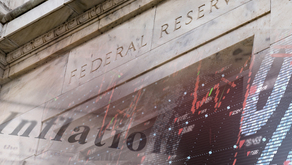Mortgage interest rates have always been of interest to home buyers and home owners, but they’ve been an especially hot topic over the last year and a half, with fixed-rate mortgages dipping historically low and staying that way for the longest period in mortgage lending history. As a mortgage loan officer, the first question I am often asked when someone calls to inquire about a home loan is:
“What is your rate?”
At their request, I always share our lowest rate, but after that I begin an even more important conversation, starting with the customer’s long and short-term mortgage and financial goals. I ask them questions so I can craft the best possible loan structure with the best corresponding interest rate. The reason this is important is:
The lowest interest rate is not always the best financial option.
7 Interest Rate Factors You Might Not Be Aware Of
First, it’s important to understand that almost all lenders across the United States get their interest rate pricing from one of two national investor giants, Freddie Mac or Fannie Mae. Both of these funding sources have a number of factors every lender must take into consideration when they are quoting interest rate options to customers. The technical term for these factors is “loan level pricing adjusters,” which, simply put, means that additional fees can be assessed based on certain borrower and loan risk characteristics, such as:
- What is the loan amount as a percentage of the value of the home?
- What is the term of the loan? Is it 30 years, 20 years, 15 years or 10 years?
- What is the borrower’s credit score? (To be specific, the credit score used is the lowest middle credit score of all borrowers on the loan application.)
- What is the residence? Is it a primary residence, second residence or investment property?
- What is the property type? Is it single-family detached, multi-unit (typically 3 to 4 units), condo or planned unit development?
- Will you be taking out cash?
- Is there subordinate financing (a second, or additional, mortgage loan on the home)?
Each of these factors can have an impact on the rate and fees associated with obtaining a mortgage loan.
Because of these adjusters, seasoned loan officers typically provide the borrower with an array of interest rate and fee options. I like to refer to mine as a “rate and fee analysis,” which I’ll tell you more about in just a moment, but first, it’s important to note that all lenders earn income on a mortgage loan and there are costs associated with getting a loan. If you see an advertisement listing a specific interest rate, most often it’s the lowest rate being offered, but it doesn’t disclose the other costs associated with the loan. As a customer, you should know to ask about those costs.
How to Tell Which Rate is Best for You
You should also request a rate and fee analysis, as I mentioned above. A lender should be able to provide an array of rates, from a higher interest rate with little or no closing costs to the lowest rate offered, which most often requires you to pay additional fees. As the rate gets lower, (even if financing the cost of the lower rate in the loan balance), your payment will be lower. However, here’s how to tell if the lower rate will truly benefit you in the long-run:
- Ask for the increase in cost of obtaining the lower interest rate.
- Divide that cost by the monthly payment savings you’ll get with that rate.
- Take that number and divide it by 12.
This equation will tell you how many years it will take to recover the cost of buying the lower interest rate. If it takes more than 5 to 7 years, you may want to consider taking a slightly higher rate with lower loan costs. Here’s why: If you pay a lot of money for the lowest available interest rate up front, and then you refinance, sell the property or pay it off full, you paid too much for that loan and the lower rate did not save you any money. You would use this same calculation even if you paid your closing costs in cash.
It is not uncommon for someone to walk out of my office happy with taking a higher interest rate because they could see and understand that rate was going to save them costs they wouldn’t be able to recover over the projected life of their loan.
A Final Recommendation
Be careful going with a lender simply for a low interest rate. They may have hidden fees or delays in closing the loan, which could be extremely frustrating and costly, causing you to lose out on the purchase of your home. It is always best to go with a lender you know and trust over a less familiar lender.
As a mortgage loan officer at Bank of Utah, a local, community bank, I love that customers can walk in and talk to me face to face. It gives us the opportunity to learn more about each other and really be meaningful about your financial goals. If you ever have any questions about your mortgage loan or interest rates, we would love to help you answer them. You can find us easily online.
Wes Barlow is a former VP Mortgage Area Manager at Bank of Utah.




